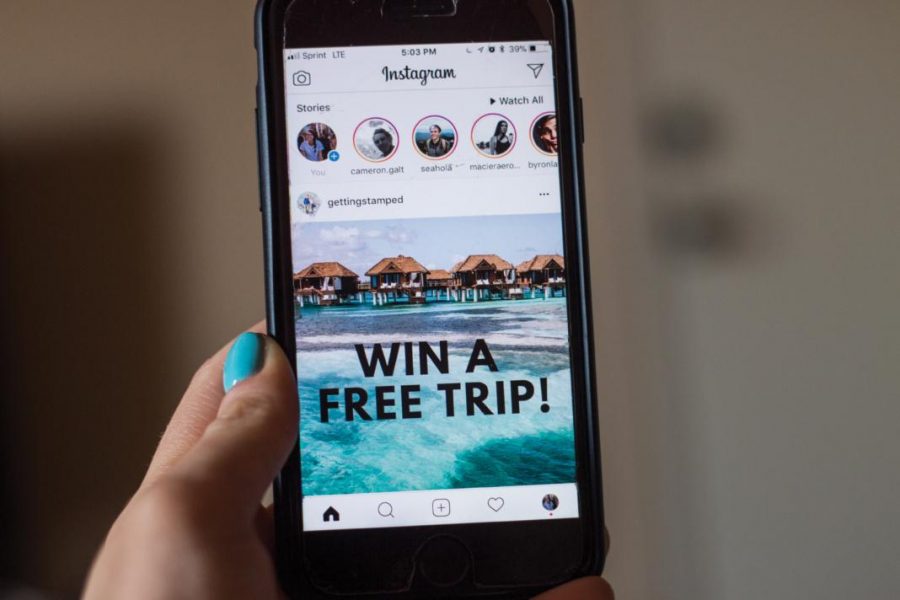Instagram has hijacked art.
You’re scrolling through your feed and notice a friend from high school is now a so-called model, an acquaintance from your freshman algebra class is a lifestyle blogger and even your cousin, a photographer, is posting “DM for collab.”
While Instagram might have fostered the growth of these accounts, Instagram culture is bad for three reasons: the mass commodification of art forms people work their whole lives to master, the “approval feedback loop” and privacy and personal safety.
Modeling, fashion and photography have always been viewed as an elite art form, but Instagram is changing that. Amateurs now have the luxury of being on the same platform as professionals as they are able to reach large audiences and earn just as much revenue as established companies and artists. Yet followers, likes and views can all be fabricated. Anyone can take a great selfie or snap a fun picture of a friend, but these people can’t typically deliver when placed next to a seasoned industry professional. Instagram model accounts are now focused on followers — successful profiles (marked by follower count, business deals, monetary value) are focused on creating buzzworthy content, rather than personal, carefully crafted expressions that are not altered by any corporation. If models and celebrities aren’t constantly posting on not just Instagram, but Snapchat and Twitter as well, they run the risk of becoming irrelevant, invisible. We shouldn’t be requiring creative minds to produce anything but their best work.
Instagram is great for personal branding, connecting with friends and receiving feedback from communities that humanity has never had access to. Yet when dependence is built on feedback and approval from anonymous digital icons, personal style, expression and confidence is sabotaged as a result. Take Vincent Van Gogh, an artist known as the lonely, mad genius responsible for creating the frameworks of modern art. If he had access to the internet, he might have found solace in digital art communities, and his art might have been influenced by the anonymous comments of others. His history of depression would have made him especially vulnerable to seek approval online and create what his followers wanted to see. If Van Gogh had not been left in his own mind, no matter how mad it was, modern art’s path would have looked different.
Privacy doesn’t truly exist in the modern world. Anyone with a phone has access to countless amounts of personal information we’re not even aware we’re sharing. Aubrey Plaza’s “Ingrid Goes West” is a humorous, yet accurate depiction of the dangers of social media. Ingrid Thorburn (Aubrey Plaza) is a mentally unstable young woman who moves to Los Angeles to meet Taylor Sloane, a boho-chic Instagram influencer. As the two inevitably become friends after Ingrid’s incessant stalking, their relationship changes from BFFs to WTF real quick. Taylor soon realizes how unhinged Ingrid actually is, and she distances herself after she attacks her brother and steals her dog.
While this movie is clearly satirical, social media stalkers are common occurrences. “Ingrid Goes West” provides a witty commentary on the dangers of social media and our extremely public lives.
Artists work for a lifetime to master their craft, just like we spend thousands of dollars and countless hours to educate ourselves for a future field. If Instagram continues the commodification of art, society will lose the absolute necessity of true, unregulated, unmarketable expression.
s.terry@dailyutahchronicle.com
@scterry


